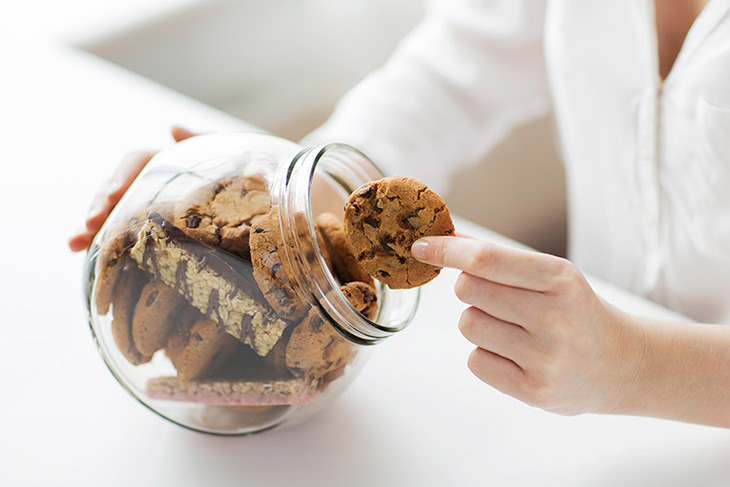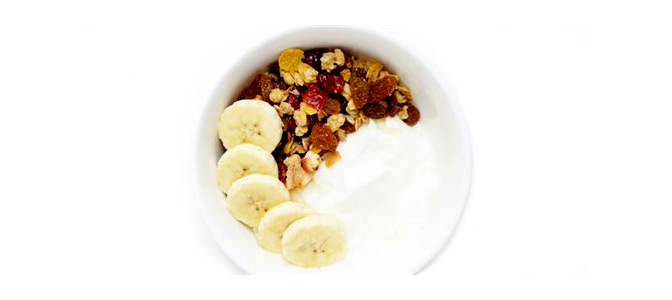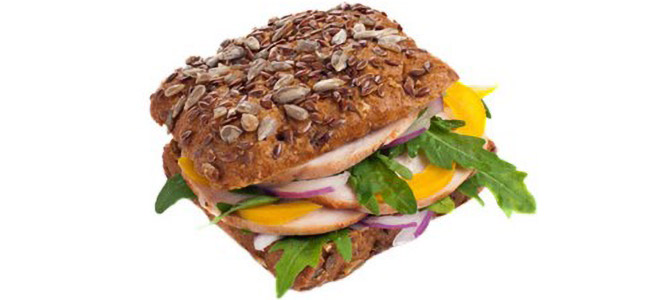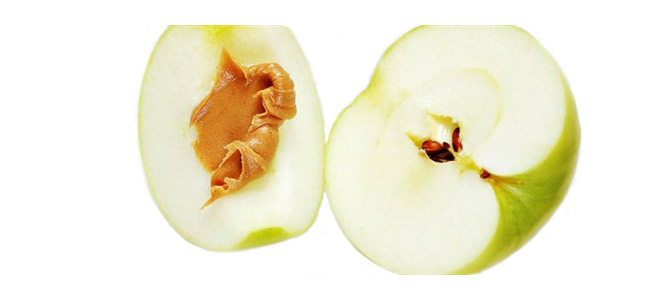Why do I feel hungry after eating?

Could you survive without morning or afternoon tea? While reaching out for the chocolate bar or muffin is a common occurrence in offices around the country, there are ways to feel fuller for longer and avoid the 3.30pm energy slump that leads to snacking.
In fact, according to Professor Jennie Brand-Miller, President of the Glycemic Index Foundation, if you’re eating a healthy, balanced breakfast and lunch, and you’re a typical sedentary office worker, you don’t actually need morning and afternoon snacks.
The key is to stabilise blood sugar levels with a balanced intake of protein, low GI carbs and good fats at breakfast and lunch,” says Professor Brand-Miller.
Why don't I feel full?
Unfortunately, many of us run on fast-release, high GI carbs such as those found in most breakfast cereals, bread and rice which don’t trigger the satiety hormones that leave us feeling full – part of why you could be feeling tired, lethargic and irritable by mid-afternoon.
The calorie count of your meal does not directly correlate to how full you will feel after eating. The feeling of fullness is derived from the breakdown of nutrients. Different nutrients take different amounts of time to be broken up which is what causes our bodies to feel fuller of a long period of time. This is also the reason why you may not feel full immediately after finishing a meal. Protein, fibre, and healthy fats all take longer for the body to metabolise making foods high in these nutrients the best for keeping you fuller for longer. Eating a high protein diet can help to keep you full while also helping to manage a healthy weight.
“Higher protein meals help control your appetite, low GI carbohydrates will ensure you won’t be going through a sugar rollercoaster throughout the day, and good fats will keep you feeling satiated,” says Professor Brand-Miller.
How thirst causes hunger
The same part of our brain that manages hunger also manages our feelings of thirst meaning that it is easy for the body to confuse hunger and thirst. Carrying around a water bottle throughout the day is a good way to measure your amount of water intake to help determine if thirst is actually the reason behind your hunger cravings. Understanding that the body receives the same signals for thirst and hunger are crucial to understanding why you may feel hungry after eating.
How stress causes hunger
When we feel stress or anxiety the body releases a chemical called cortisol which causes feeling of hunger. Stress hunger is usually easier to identify then other forms of hunger because typically cortisol causes us to crave snacks that are sugary or sweet rather than full meals. A sudden or quick feeling of hunger may be another sign that you are feeling hungry as a result of stress. You should start feeling hungry gradually over time after several hours of not eating so if you notice that your craving sweets suddenly, make sure you are not eating as a result of stress.
“Part of the stress response is to increase appetite for your body to prepare for a ‘fight or flight’ response,” says Professor Brand-Miller.
“Ensuring you have a good sleep routine and managing your stress levels is also important to keep your hunger hormones in check.”
Here's what to eat for breakfast and lunch so you won’t feel food cravings.
Breakfast

| FOOD GROUP | Healthy Breakfast Bowl |
| Bread & Cereals | 40g high-fibre cereal (e.g. All Bran or muesli) |
| Dairy | 1 cup low-fat milk or 175g low-fat yoghurt |
| Fruit | 1 medium piece fruit (e.g. banana) |
Lunch

| FOOD GROUP | Healthy Chicken Sandwich |
| Bread & Cereals | 2 slices wholegrain low GI Bread |
| Fats & Healthy Oils | 1 teaspoon avocado |
| Meat & Protein | 50g cooked chicken breast |
| Vegetables | 1 cup salad |
Healthy snack ideas
Still feeling peckish? Here’s some healthy snacks that will make you feel fuller longer:
- A handful of nuts
- An apple with a tablespoon of nut butter
- Chopped up non-starchy vegies such as carrot, cucumber and celery with hummus
- Clear homemade soups
These types of foods are high in the nutrients that contribute to a feeling of fullness over a longer period of time making them a healthy choice for a snack if you do have any cravings throughout the day.
As for the sweet treat you have to eat after a meal? If you’re trying to lose weight, it might be helpful to take on board what Professor Brand-Miller suggests: “Morning and afternoon tea was designed at a time when people expended a lot more energy throughout the day. They were much more active, there were no washing machines, no cars, and people had to walk to places. These days we spend most of the time fixed to a chair. Instead of a tea break, go for a scheduled 15 minute walk around the block to clear your head.
Are you trying to lose weight? Read our comprehensive guide on weight loss to understand where to begin, what happens when you lose weight, and what doesn't work when it comes to dieting.

